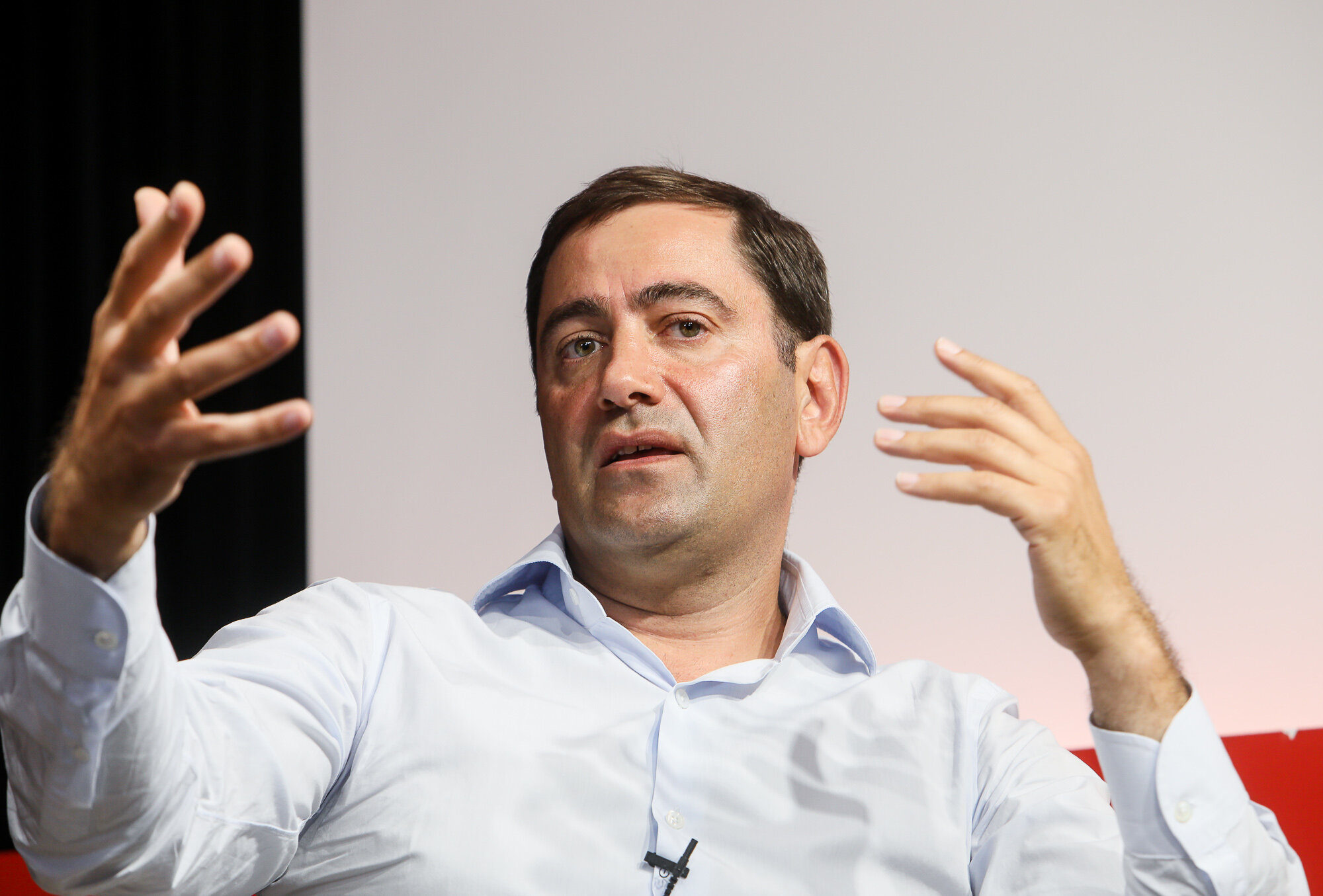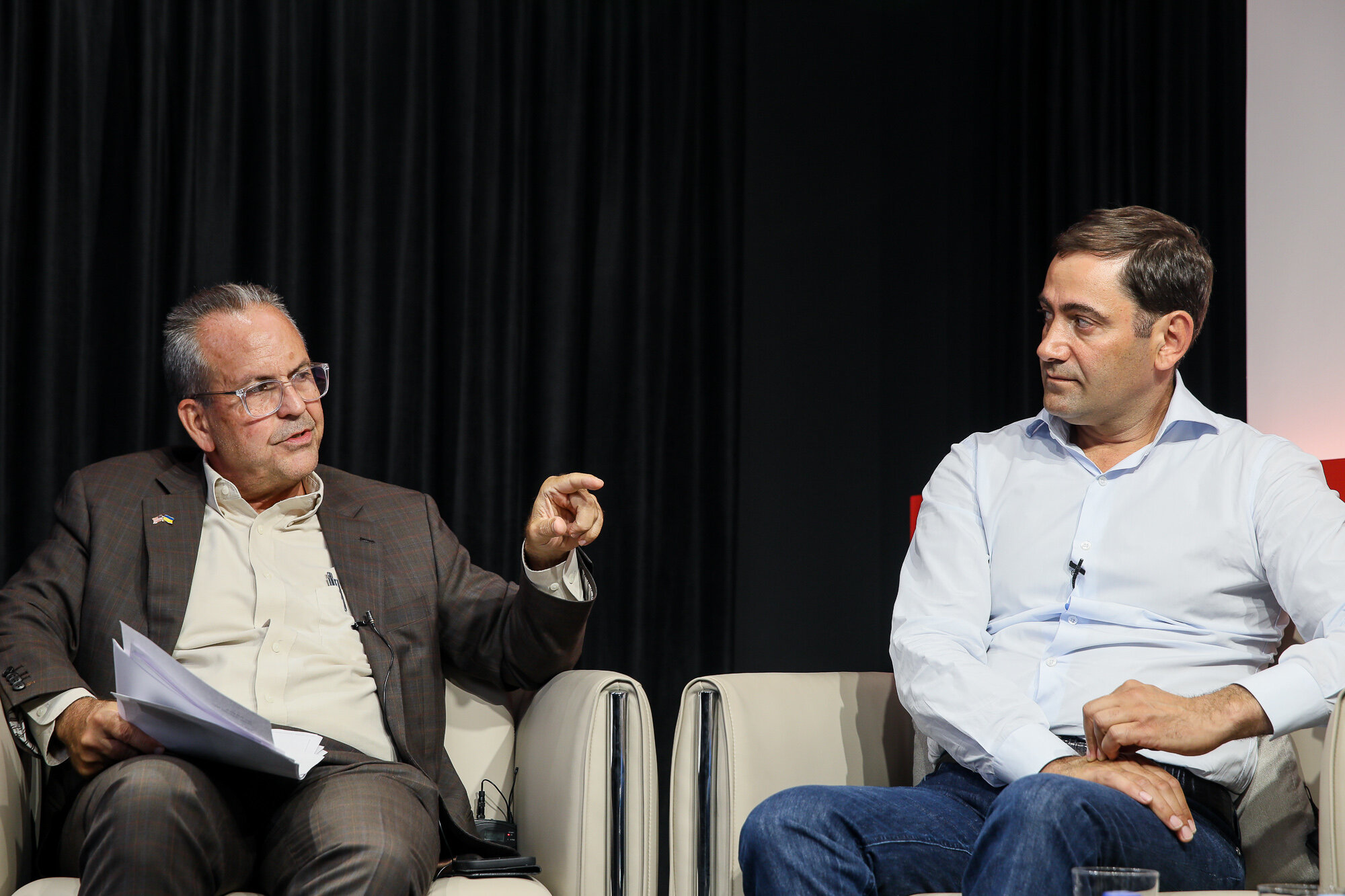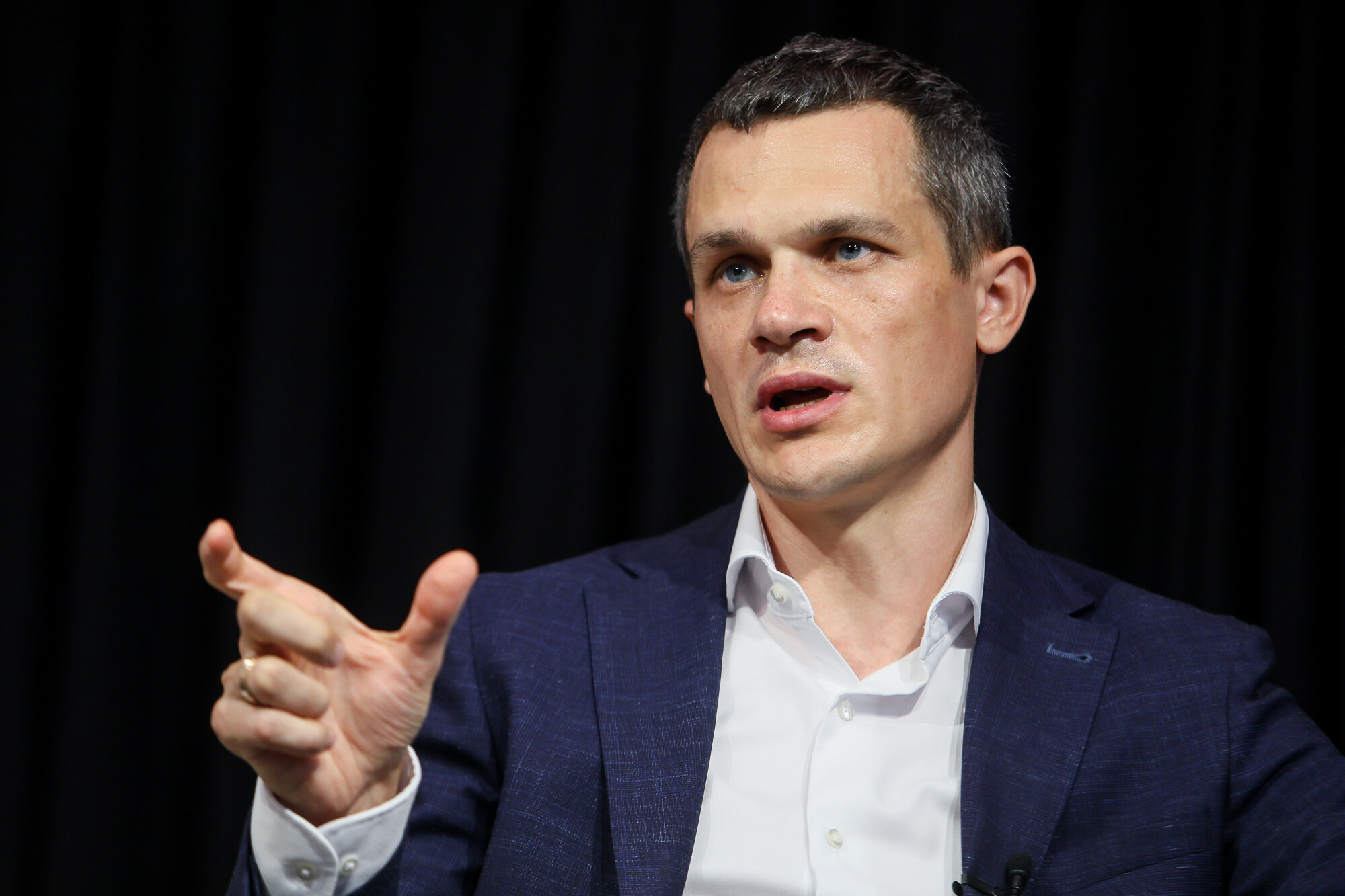Ukraine’s betting industry could turn the country into the biggest gambling market in Eastern Europe, according to Anton Kuchukhidze, chairman of the Ukraine Gambling Council.
“Ukraine could become an Eastern European Las Vegas,” Kuchukhidze said during ‘Legalization of Gambling in Ukraine,’ a discussion streamed online from the Kyiv Post studio on Aug. 17.
Gambling was banned in Ukraine for 11 years, from 2009-2020. During this time, illegal casinos flourished, reaching annual collective revenue of about $1 billion by most estimates. In a bid to stop these seedy establishments and bring more money to the budget, the government legalized gambling one year ago.
This has proven to be a success story so far, according to Boris Baum, first deputy chief of the Expert Advisory Council of the Ukrainian Gambling and Lotteries Regulation Commission, who said 40 licenses have been approved since February.
Baum said he projects the market to reach $20-30 billion — up to 15 percent of gross domestic product — in the years to come if Ukraine manages to attract more investors. But many details remain to be worked out.
For example, the industry is largely tax-free at the moment because the gambling tax laws haven’t been voted on yet. Since the beginning of the year, casinos only generated Hr 1.1 billion ($41 million) in taxes.
Watch here: Kyiv Post webinar: Legalization of gambling in Ukraine
Expensive business
Taxes are crucial for investors, Kuchukhidze said. “They help investors and advisers to calculate the potential of a market,” he said.
Many high-end hotels, including the Fairmont, the Intercontinental, the Premier Palace in Kyiv, and the Hotel Gagarin in Odesa have already obtained licenses to operate a casino. Under the law, gambling halls are only permitted in five-star hotels.
And licenses are not cheap. It can cost an operator $2.5 million per year in licensing fees to open a casino, according to Baum, who said the size of the market justifies the expense. “Ukraine is the largest European country that gambles, and this market is very lucrative,” Baum said.
However, the lack of clear tax regulations hampers the market, he said. Until the Verkhovna Rada passes the law on gambling taxes in September, operators entering the market have to pay three times the licensing fee as a substitute for future taxes. This keeps investors at bay.
“New players are not happy with it, which is why we don’t have a lot of foreign investors on the market today,” Baum said.
Baum added high license fees are crucial because they serve as a guarantee for the player’s deposits. “This money is used to cover people’s deposits if something wrong happens to the gambling operator,” he said.
Social responsibility
Gambling operators also need to take care of addicted players, Roman Syrotian, co-CEO at Parimatch Tech, the developer for Ukraine’s biggest online betting operator, said.
“We need to know how to find them and define them,” he said. He added that technology can help identify patterns of behavior that are red flags for gambling addiction.
However, Syrotian said the government must have a role in making players understand that gambling is entertainment and not a livelihood. Education is key to avoid gambling addiction, he said.
Gaming operators are only now beginning to put in mechanisms to protect players struggling with addiction, including phone notifications and psychological support. Syrotian also complained that the laws on this were insufficient, forcing operators to shoulder the responsibility.
Baum vehemently disagreed with Syrotian’s statement, saying the law encompasses “very strict responsibilities” for every player in the industry, including law enforcement officers failing to close illegal businesses.
“One of the functions (of the law) is to protect society and people,” he said. “It creates a balance between businesses and players.”
Simple rules
Oleksiy Kucher, head of the State Regulatory Service of Ukraine, believes that gaming regulations must be as simple as possible to improve conditions for businesses and help bring them out of the shadows faster.
“The state’s goal is to take more taxes of course, but the goal of businesses is to make more money and create more jobs for people, this is where our goals converge,” Kucher said.
He admitted the gambling industry is only now taking its first steps toward transparency and a significant portion remains in the gray market.
“The fight against illegal operators turns online, as recently a court gave orders to close more than 1,000 illegal online sites,” Kuchuhidze said.
For Kucher, the state will only be able to assess the potential profit of the market when it’s fully legalized.
“It will take about one or two years,” he said.






